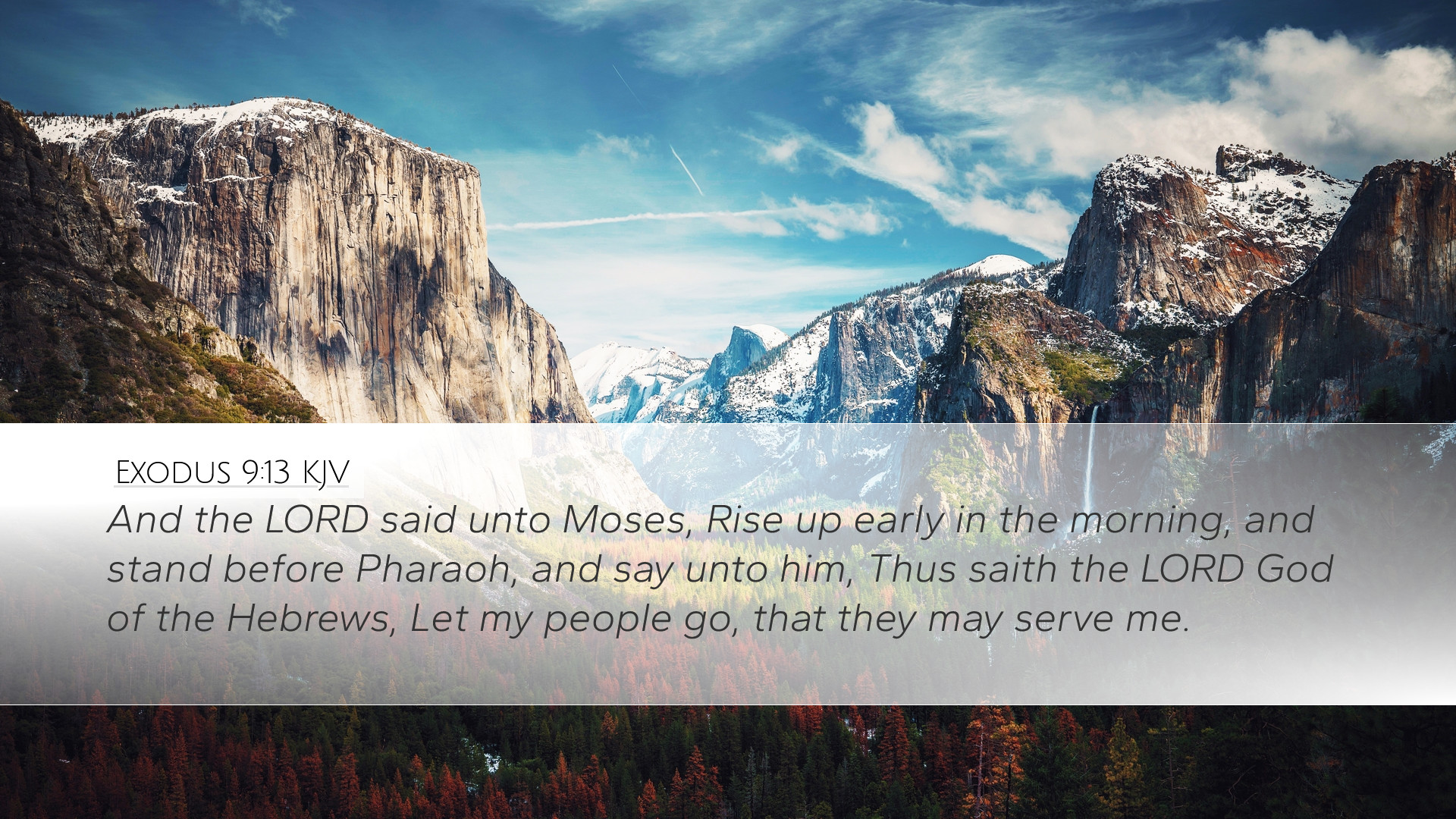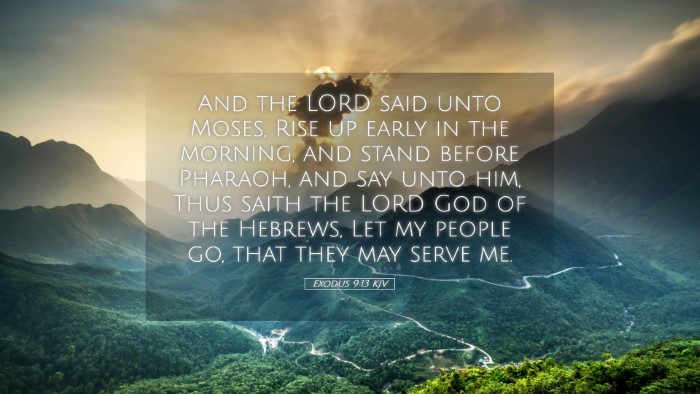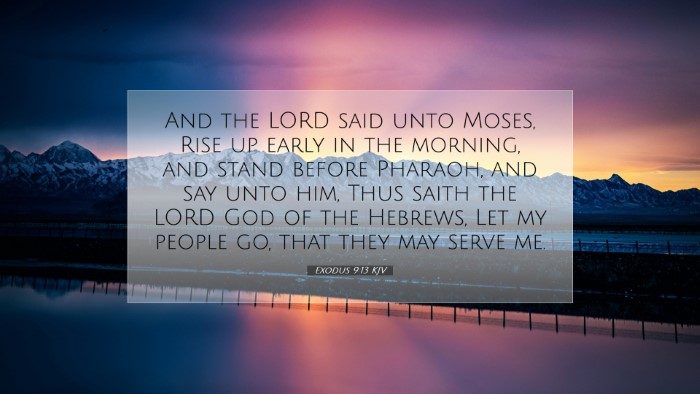Exodus 9:13 - Commentary Summary
Exodus 9:13 states: "Then the Lord said to Moses, 'Get up early in the morning, and stand before Pharaoh and say to him, "Thus says the Lord God of the Hebrews: "Let My people go, that they may serve Me."'" This verse marks a significant moment within the continued narrative of God's deliverance of the Israelites from Egyptian bondage. In examining this verse, we find rich layers of theological and historical meaning drawn from various public domain commentaries.
The Contextual Significance
In the broader context of Exodus, this moment follows the sequence of plagues that God has imposed upon Egypt to compel Pharaoh to comply with His demands for the release of the Israelites. As noted by Matthew Henry, the use of the phrase "thus says the Lord" emphasizes God's sovereignty and authority in the matter. Henry points out that God is establishing His will and sovereignty over the might of Pharaoh and the power of Egypt, which were renowned throughout the ancient world.
Divine Authority and Prophetic Voice
Albert Barnes emphasizes the importance of Moses's role as a prophet and spokesperson for God. In this moment, Moses is directed to speak boldly to Pharaoh, who represents a formidable earthly power. Barnes highlights that the urgency implied by "get up early" shows God's earnest desire for the liberation of His people. This reflects not only God's patience but also His relentless pursuit of justice for the oppressed.
Moses’s early morning encounter is not merely about timing; it symbolizes the preparedness required in fulfilling one's divine calling. Adam Clarke adds insight by stating that timing in spiritual endeavors is critical. Being proactive in one’s faith affirms the seriousness of God's mission and the urgency inherent in confronting oppression.
Theological Implications
This command given to Moses carries profound theological implications concerning obedience, worship, and the nature of God’s justice. Matthew Henry notes that God's intention was not solely the release of the Israelites for their benefit but for their service to Him. This highlights a fundamental biblical theme: liberation is not an end in itself but a means to fulfill divine purpose. It propels the Israelites toward worship and service, reinforcing their identity as God's chosen people.
Additionally, the term "serve" is laden with significance. It underscores the idea that true freedom is found in serving God, a theme prevalent throughout Scripture. The Israelites were to be released from slavery in Egypt to serve as a people dedicated to God, indicating that genuine liberation includes a commitment to divine service.
Pharaoh's Role and Human Resistance
The interaction between God’s command and Pharaoh’s obstinacy unveils the tragic resistance of human hearts against divine authority. Barnes points out that Pharaoh’s hardened heart serves as a warning and a lesson on the consequences of pride and rebellion against God. Each encounter diminishes Pharaoh’s stature, highlighting God’s ultimate power over earthly rulers.
Clarke notes that Pharaoh’s repeated refusal serves as a reflection of the hardened hearts of humanity. This divine-human interplay illustrates how God, in His sovereignty, allows free will while also working within the contours of human choices to ultimately realize His purposes.
Preparation and Obedience in Leadership
In considering this verse, there are practical takeaways for church leaders and scholars alike. Matthew Henry encourages leaders to be diligent in preparation, as Moses exemplified by his readiness to approach Pharaoh. The dedication to assiduously seek God's guidance and direction is a crucial component of effective leadership.
Barnes comments on the need for leaders to be unfaltering in their mission, drawing strength from God’s promises. The act of standing before Pharaoh represents not just a physical confrontation but a spiritual one, calling leaders to engage with conviction and reliance on divine strength.
Conclusion
This brief commentary on Exodus 9:13 reveals the profound depths of God's redemptive plan and the importance of obedience to His will. It serves as a reminder that God’s liberation is inherently tied to His purpose and that faithful leadership requires preparation, courage, and steadfastness amidst opposition. As pastors, students, theologians, and Bible scholars reflect on this verse, they are called to consider their own roles within God's continuing story of redemption.


